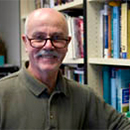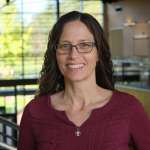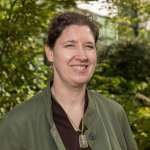Page 3 • (110 results in 0.034 seconds)
-
Biology Courses Take the following two introductory courses: BIOL 225: Molecules, Cells and Organisms BIOL 226: Genes, Evolution, Diversity and Ecology You might also consider taking some of the
introductory courses: BIOL 225: Molecules, Cells and Organisms BIOL 226: Genes, Evolution, Diversity and Ecology You might also consider taking some of the following upper division courses: BIOL 330: Genetics BIOL 342: Microbiology BIOL 352: Comparative Anatomy BIOL 448: Immunology BIOL 453: Mammalian Physiology Often PA schools require you to take a course in microbiology, anatomy and/or physiology. Please make sure you look at the requirements of individual schools, particularly whether they require a
-
Biology Courses Take the following two introductory courses: BIOL 225: Molecules, Cells and Organisms BIOL 226: Genes, Evolution, Diversity and Ecology You might also consider taking some of the
introductory courses: BIOL 225: Molecules, Cells and Organisms BIOL 226: Genes, Evolution, Diversity and Ecology You might also consider taking some of the following upper division courses: BIOL 330: Genetics BIOL 342: Microbiology BIOL 352: Comparative Anatomy BIOL 448: Immunology BIOL 453: Mammalian Physiology Often PA schools require you to take a course in microbiology, anatomy and/or physiology. Please make sure you look at the requirements of individual schools, particularly whether they require a
-

Professor Emeritus of Biology | Department of Biology | craytoma@plu.edu
Michele Crayton Professor Emeritus of Biology Email: craytoma@plu.edu Professional Education M.S., Plant Physiology/Development, Oregon State University, 1974 M.S., Biology, University of Missouri at Kansas City, 1969 B.S., Biology, University of Missouri at Kansas City, 1967 Areas of Emphasis or Expertise Toxic freshwater cyanobacteria
Contact InformationArea of Emphasis/Expertise -

Beautiful mutants: a PLU biology class harvests for the future About two years ago, PLU professor Neva Laurie-Berry partnered with a world-class plant research center. The Donald Danforth Plant Science Center in St. Louis, Mo., sends Laurie-Berry’s BIOL 358 Plant Physiology class millet seeds with…
Biology class participates in research project Posted by: shortea / March 13, 2023 March 13, 2023 Beautiful mutants: a PLU biology class harvests for the futureBy Lora ShinnMarketing & Communications Guest Writer About two years ago, PLU professor Neva Laurie-Berry partnered with a world-class plant research center. The Donald Danforth Plant Science Center in St. Louis, Mo., sends Laurie-Berry’s BIOL 358 Plant Physiology class millet seeds with random mutations. Student teams study plants in
-

About two years ago, PLU professor Neva Laurie-Berry partnered with a world-class plant research center. The Donald Danforth Plant Science Center in St. Louis, Mo., sends Laurie-Berry’s BIOL 358 Plant Physiology class millet seeds with random mutations. Student teams study plants in PLU’s warm, sunny…
in St. Louis, Mo., sends Laurie-Berry's BIOL 358 Plant Physiology class millet seeds with random mutations. Student teams study plants in PLU’s warm, sunny greenhouse, watching for genetic traits that help millet grow taller or produce more seeds.“The Danforth Center is crowdsourcing genetic research,” Laurie-Berry says. “We’re helping Danforth go through thousands of seeds, identifying which are worth studying. No one knows how each one will behave.” PLU students are joining high school and
-

About two years ago, PLU professor Neva Laurie-Berry partnered with a world-class plant research center. The Donald Danforth Plant Science Center in St. Louis, Mo., sends Laurie-Berry’s BIOL 358 Plant Physiology class millet seeds with random mutations. Student teams study plants in PLU’s warm, sunny…
. Louis, Mo., sends Laurie-Berry's BIOL 358 Plant Physiology class millet seeds with random mutations. Student teams study plants in PLU’s warm, sunny greenhouse, watching for genetic traits that help millet grow taller or produce more seeds.“The Danforth Center is crowdsourcing genetic research,” Laurie-Berry says. “We’re helping Danforth go through thousands of seeds, identifying which are worth studying. No one knows how each one will behave.” PLU students are joining high school and undergraduate
-

Resident Instructor of Biology | Department of Biology | mcrites@plu.edu | 253-535-7214
Michelle Crites Resident Instructor of Biology she/her/hers Phone: 253-535-7214 Email: mcrites@plu.edu Office Location: Rieke Science Center - 152 Office Hours: (On Campus) Mon: 2:00 pm - 3:30 pm (On Campus) Wed: 2:00 pm - 4:00 pm (On Campus) Thu: 12:00 pm - 1:30 pm Professional Education M.S., Biological Sciences, California Polytechnic State University, 1999 B.S., California Polytechnic State University, 1996 Areas of Emphasis or Expertise Human Anatomy and Physiology
Office HoursMon: 2:00 pm - 3:30 pmWed: 2:00 pm - 4:00 pmThu: 12:00 pm - 1:30 pmArea of Emphasis/Expertise -

Associate Professor of Biology | Department of Biology | laurienl@plu.edu | 253-536-5025
Neva Laurie-Berry Associate Professor of Biology she/her/hers Phone: 253-536-5025 Email: laurienl@plu.edu Office Location: Rieke Science Center Office Hours: (On Campus) Mon: 1:00 pm - 3:00 pm (On Campus) Tue: 12:00 pm - 2:00 pm (On Campus) Fri: 9:30 am - 10:30 am (On Campus) Mon - Fri: By Appointment Professional Education Ph.D., Molecular Genetics, Washington University at St. Louis, 2008 B.A., Biology, Illinois Wesleyan University, 2000 Areas of Emphasis or Expertise Plant Physiology
Office HoursMon: 1:00 pm - 3:00 pmTue: 12:00 pm - 2:00 pmFri: 9:30 am - 10:30 amMon - Fri: -Area of Emphasis/Expertise -
12 semester hours in one of the following six work sectors A. Education 12 semester hours from one of the following areas Biology Chemistry Computer Science Education English Geosciences Math
: Introductory Microbiology BIOL 205: Human Anatomy and Physiology I BIOL 206: Human Anatomy and Physiology II BIOL 225: Molecules, Cells, and Organisms BIOL 341: Developmental Biology BIOL 342: Microbiology BIOL 352: Comparative Anatomy BIOL 444: Neurobiology BIOL 448: Immunology BIOL 449: Virology BIOL 453: Mammalian Physiology Chemistry CHEM 105: Chemistry of Life CHEM 403: Biochemistry I CHEM 405: Biochemistry II Kinesiology KINS 277: Foundations of Kinesiology KINS 279: Teaching Physical Activity KINS
-
I graduated from PLU in the spring of 2014 with majors in Biology and Hispanic Studies. A semester away in Oaxaca, Mexico led me to recognize my interest in promoting food security, and greatly
Seanna HewittI graduated from PLU in the spring of 2014 with majors in Biology and Hispanic Studies. A semester away in Oaxaca, Mexico led me to recognize my interest in promoting food security, and greatly influenced the avenue I took for my graduate career. I am now beginning my fourth year in the Molecular Plant Sciences PhD program at Washington State University, where I am studying the genetics and physiology of fruit ripening. As part of my thesis project, I am developing a set of
Do you have any feedback for us? If so, feel free to use our Feedback Form.


